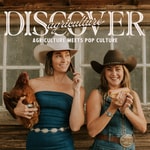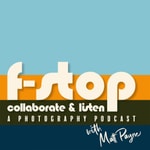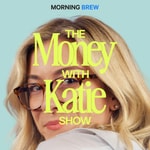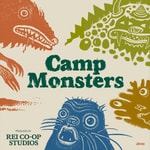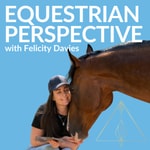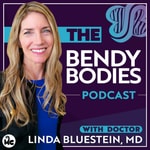Best Horse Practices Podcast – Details, episodes & analysis
Podcast details
Technical and general information from the podcast's RSS feed.
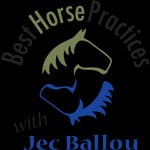
Best Horse Practices Podcast
Maddy Butcher
Frequency: 1 episode/12d. Total Eps: 100

Recent rankings
Latest chart positions across Apple Podcasts and Spotify rankings.
Apple Podcasts
🇩🇪 Germany - naturalSciences
30/07/2025#91🇩🇪 Germany - naturalSciences
29/07/2025#78🇩🇪 Germany - naturalSciences
28/07/2025#67🇩🇪 Germany - naturalSciences
27/07/2025#48🇩🇪 Germany - naturalSciences
26/07/2025#37🇫🇷 France - naturalSciences
24/07/2025#84🇬🇧 Great Britain - naturalSciences
16/05/2025#97🇬🇧 Great Britain - naturalSciences
15/05/2025#89🇬🇧 Great Britain - naturalSciences
14/05/2025#79🇬🇧 Great Britain - naturalSciences
13/05/2025#62
Spotify
No recent rankings available
Shared links between episodes and podcasts
Links found in episode descriptions and other podcasts that share them.
See all- https://www.thehorsesadvocate.com/
146 shares
- https://kershaw.kaiusa.com/
107 shares
- https://lucernefarms.com/
101 shares
RSS feed quality and score
Technical evaluation of the podcast's RSS feed quality and structure.
See allScore global : 72%
Publication history
Monthly episode publishing history over the past years.
What Does Abuse Look Like? A Talk with Daniel Dauphin
Season 5 · Episode 4
samedi 24 août 2024 • Duration 34:47
We love to hear from listeners and contacting us is easy here.
We offer these shows for free. If you think it’s worthy of a small contribution, we sure would appreciate it.
We’re dedicating another show to horsey intellectualism. Intellectualism roughly means thinking, studying, and/or discussing complicated ideas without getting emotional. I guess what we do on this show is a sort of low-level intellectualism, redneck intellectualism, because we’re not consulting great philosophers or significant texts. But we are bouncing around ideas that are complicated and less straight forward than a lot of articles or social media posts seem to make them.
I think owners and riders inevitably come across these ideas in their time with horses. I know I do, sometimes as I’m riding along, sometimes as I’m lying in bed, pondering a life with or without equines.
Not much is black and white. There’s a lot of grey area to consider when it comes to, well, everything, but in this case, horse care and management. Doesn’t it seem like there has been a lot of outrage and side-taking lately? Maybe we could be doing more listening and show a little more curiosity?
Anyway, for episode 4, I invited Daniel Dauphin, the Louisiana horseman whose specialty is bit function and design and horse mouth anatomy.
Thankfully, he’s not one to shy away from what he calls ‘career suicide’ by saying things that might not be in step with the latest money-making trend or attention-grabber. I was happy to bug him for this continuation of a related chat with Nina Fuller last week in which we talked about livestock and our agrarian lives.
Daniel and I bounce around the ways in which people perceive the treatment of animals. What does abuse look like? Certainly, it looks different to different people. How is that so? And, what does the horse want and need? Can we decipher that objectively or do we get misdirected by questionable motivations?
Thanks to our title sponsor, Lucerne Farms, producers of quality forage feeds, extremely handy and healthy bales of alfalfa, timothy, and grass blends. A great addition or substitute for your hay or grass and way better than grain. They also make products for your stalls and chickens. Check them out at lucerne farms com
Watch Daniel Dauphin's BHPS presentation.
Check out his YouTube channel.
As I mentioned in the last episode, horses are livestock. When it comes to laws and policies, that puts them in roughly the same category as sheep and cattle, not dogs and cats. Over the last few generations, however, as an increasing percentage of horses are used for exclusively recreational purposes. In popular culture, barn culture, in a materialistic and consumer-driven world, the species has moved into a fuzzy space between livestock and pets. American laws, for instance, are sometimes at odds with prevailing attitudes. It can be messy.
And, yes, we know that the practicality of putting horses together at Olympic events is probably problematic. But why not, for instance, put them in with other horses they know? Seabiscuit traveled with a companion. Rodeo horses are put together. I could be cynical and say it’s all about money, but can we think outside the box – even if it is lined with locally sourced shavings?
We can’t wait to hear from listeners. What do you think about animals in our society?
How do we balance old standards of agriculture and animal treatment with where we are now and what we know now and, for us horse owners, what we need and want from our equine partners?
It doesn’t escape me that Daniel and I live rural existences, maybe more rural and old fashioned than many listeners. Our points of view come from cumulative observation and interaction with land and animals. Your days and interactions are not our days and interactions. That’s one reason I’m interested in hearing from your shared or different perspectives.
Watch Daniel Dauphin's BHPS presentation.
Check out his YouTube channel.
Thanks to Redmond Equine for generously sponsoring our show. With the warm weather and the turn of the season, make sure to have Redmond’s salt available free choice for your horses. We think they’ll love it. You can hang the Rock on a Rope on a fence or in the stall. Order a box full at Redmond equine dot com.
Also thanks to Patagonia WorkWear for their continued support. I hope you can check out their hemp full zip sweatshirt. It’s probably the softest, yummiest sweatshirt I’ve ever owned. And it comes in a buttery yellow that makes me smile. Also, check out the tough hemp canvas vest – extremely handy for all seasons but especially fall.
Give us feedback, suggest a topic or guest, or make a donation and you’ll be automatically entered to win a free Patagonia WorkWear item that we give away every month. Redmond Equine is sending a complimentary syringe of Daily Gold Stress Relief to everyone who drops a tip in our donation jar. Pretty cool and a $15 value. If you get something of value from our podcast, please consider making a donation. We sure would appreciate it.
That’s it. Another episode in the can and out of the barn. Thanks for listening y’all.
Life and Death of Livestock and Pets, a Short Conversation with Nina Fuller
Season 5 · Episode 3
lundi 19 août 2024 • Duration 28:50
We love to hear from listeners and contacting us is easy here.
We offer these shows for free. If you think it’s worthy of a small contribution, we sure would appreciate it.
This is Episode 3 of Season 5 and we’re dedicating the next few shows to some horsey intellectualism. I like to look up words, to make sure I’m saying what I mean. Intellectualism roughly means thinking, studying, and/or discussing complicated ideas without getting emotional. I guess what we do on this show is a sort of low-level intellectualism, redneck intellectualism, because we’re not consulting great philosophers or significant texts. But we are bouncing around ideas that are more complicated, less straight forward, say, than which muck rake is best or how hay prices are looking this summer.
I think horse owners and riders inevitably come across these ideas in their time with equines. I know I do, sometimes as I’m riding along, sometimes as I’m lying in bed, pondering a life with or without horses.
Anyway, for episode 3, I invited Nina Fuller of Lily Brook Farm in Hollis Maine to join me. Nina is a heckuva accomplished woman. About 14 years ago, she got in touch with me and wrote a few guest columns for what was then my new website, NickerNews. She is a farmer and raises sheep. She’s an award-winning photographer. But until about 10 years ago, we hadn’t met. That was when I was driving cross country, from Utah to Maine. I stopped, off a state highway, in a desolate section of northern Colorado and was just about to let my dogs out for a break when two lambs came rushing up to me. They were very young, maybe a week old, with shriveled umbilical cords, and in the middle of nowhere. I picked them up and searched in vain for a rancher, a ranch, someone or some ewe who could claim them. To no avail. So, they joined me cross country and – long story short – they ended up at Nina’s farm.
Order her book, "Where's Hope?" from Cayuse Communications.
Listen to the cross-country story here.
So, yes, back then when I called her for help, “What should I do with these lambs? How can I save them?” Nina and I didn’t know each other except through email. I’m indebted to her for her kindness, her expertise, and for taking the lambs. I think she has been happy with the lambs, who she named Emma and Pearl and who have given her many lambs over the years. Pearl died last week.
Our conversation ties into a broader conversation around pets and livestock, animals in our modern world. Next up, Daniel Dauphin, who has been doing some pondering over the recent hullabaloo with suspended Olympian Charlotte Dujardin. This has gotten Daniel and I and I’m sure many of you thinking about what folks consider wellness, if it belongs in the livestock world, and with what different people consider abuse, horse welfare and wellbeing. Let’s just say what Charlotte Dujardin did pales in comparison to what Brett and Alexis Ingraham did at the tragically ironically named Fair Play Farm in Maine – something I reported on years ago. We’ll consider the broad spectrum of standards in horse communities, amidst the many disciplines and cultures.
Horses, of course, are livestock. When it comes to laws and policies, that puts them in the roughly the same category as sheep and cattle, not dogs and cats. Over the last few generations, however, as an increasing percentage of horses are used recreationally, in popular culture and especially women’s barn culture, the species has moved into a grey area between livestock and pets. American laws, for instance, are sometimes at odds with prevailing attitudes. It can be messy.
Thanks to our title sponsor, Lucerne Farms, producers of quality forage feeds, extremely handy and healthy bales of alfalfa, timothy, and grass blends. A great addition or substitute for your hay or grass and way better than grain. They also make products for your stalls and chickens. Check them out at lucerne farms com
We can’t wait to hear from listeners. What do you think about animals in our society?
How do we balance old standards of agriculture and animal treatment with where we are now and what we know now and, for us horse owners, what we need and want from our equine partners?
It doesn’t escape me that Nina and I live rural existences, maybe more rural and old fashioned than many listeners. Our choices come from cumulative observation and interaction with creatures, domestic and wild, in our admittedly small spheres of land and animals. That’s one reason I’m interested in hearing from your shared or different perspectives.
I like to think we’re all mindful to carefully avoiding anyone or anything suffering, but, of course, we can’t avoid death. It’s part of life. I’ve been thinking about these things a lot since my mom died and my horse, Barry, died, in quick sequence, less than two years ago. Like so many people in today’s world, I’d managed to avoid much interaction with death. On the eve of turning 60, I’m giving it more attention and considering how just like life, death is all around us if we’re paying attention. We don’t need to be afraid of it or get dark and brooding over it. It just is.
Thanks to Redmond Equine for generously sponsoring our show. With the warm weather and the turn of the season, make sure to have Redmond’s salt available free choice for your horses. We think they’ll love it. You can hang the Rock on a Rope on a fence or in the stall. Order a box full at Redmond equine dot com.
Also thanks to Patagonia WorkWear for their continued support. Give us feedback, suggest a topic or guest, or make a donation and you’ll be automatically entered to win one of two free Patagonia WorkWear items that we give away every month. Redmond Equine is sending a complimentary syringe of Daily Gold Stress Relief to everyone who drops a tip in our donation jar. Pretty cool and a $15 value. If you get something of value from our podcast, please consider making a donation. We sure would appreciate it.
That’s it. Another episode in the can and out of the barn. Thanks for listening y’all.
Ben Longwell: Meanings of partnership
Season 4 · Episode 21
lundi 12 février 2024 • Duration 35:04
Our show is a space for riders and horse owners of all disciplines to learn best practices and to discover skills, strategies, tools, ideas, and insights for better connecting with their horses, with all horses and for getting work done.
We love to hear from listeners and contacting us is easy here.
We offer these shows for free. If you think it’s worthy of a small contribution, we sure would appreciate it.
This is Episode 21 of Season 4. In it, I interview Ben Longwell, who runs True West Horsemanship. This will make a third visit for Ben on the show. In past interviews, he’s had great insight to bitless options as well as nervous horse help. Here, we talk about the evolution of horsemanship and different directions people are taking the horse-rider partnership. He often sees the extreme ends of a spectrum but notices a lot of interesting developments in the middle. It’s a really nice interview we hope you’ll enjoy.
Thanks very much to the folks who have donated to Buck the Trend, the pilot mental health forum I’m directing next week. It is a two-day, all expenses paid learning opportunity specifically for those in our horse community. We have working cowboys, clinicians, ranchers, farriers, and others coming from Arizona, New Mexico, Oregon, and elsewhere. Get a great t-shirt and support the cause. Learn more here.
Also, we welcome Hoka and Skratch Labs to our family of sponsors. Jec and I consider ourselves athletes and we hope you do, too. Like they say with horses and hooves, for want of a shoe a horse was lost, for want of a horse, a rider was lost. Well, we think the same goes for happy human feet. When they’re not in riding boots, keep your feet happy in Hokas.
Also, did you know that Skratch labs offers milk and cookies? They have chocolate milk mix with probiotics, to which you simply add water. And they have cookie mix to which you add butter and things like chocolate chips and nuts. Or whatever you want. Check these new show supporters out at hoka.com and skratch labs .com
Thanks to our title sponsor, Lucerne Farms, producers of quality forage feeds, extremely handy and healthy bales of alfalfa, timothy, and grass blends. A great addition or substitute for your hay or grass and way better than grain. They also make products for your stalls and chickens.
Thanks to Redmond Equine and Pharm Aloe – for generously sponsoring our podcast. Check out Pharm Aloe’s aloe pellets which you can simply sprinkle on your horse’s feed and Redmond’s Rock on a Rope which you can simply hang on a fence. We think you’ll love ‘em.
Also thanks to Patagonia WorkWear for their continued support. Give us feedback, suggest a topic or guest, or make a donation and you’ll be automatically entered to win one of two free Patagonia WorkWear items that we give away every month. Don’t forget that Redmond Equine is sending a complimentary syringe of Daily Gold Stress Relief to everyone who drops a tip in our donation jar. Pretty cool and a $15 value. If you get something of value from our podcast, please consider making a donation. We sure would appreciate it.
Julie Goodnight
Season 4 · Episode 20
jeudi 8 février 2024 • Duration 28:12
We love to hear from listeners and contacting us is easy here.
We offer these shows for free. If you think it’s worthy of a small contribution, we sure would appreciate it.
This is Episode 20 of Season 4. In it, Jec interviews Julie Goodnight. I feel like this interview has been a long time coming. Jec has admired Julie for years and it took quite a bit of effort to finally coordinate the online meet up. I remember watching Julie at the Equine Affaire in Massachusetts, back in maybe 2008? Julie has an incredible wealth of experience and also perspective as she’s been in the midst of educating humans for so long. We’re so happy to have her on the show.
A few other notes:
Thanks very much to the folks who have donated to Buck the Trend, the pilot mental health forum I’m directing next week. Next week! It is a two-day, all expenses paid learning opportunity specifically for those in our horse community. We have working cowboys, clinicians, ranchers, farriers, and others coming from Arizona, New Mexico, Oregon, and elsewhere. Get a great t-shirt and support the cause. Learn more here.
Also, we welcome Hoka and Skratch Labs to our family of sponsors. Jec and I consider ourselves athletes and we hope you do, too. Like they say with horses and hooves, for want of a shoe...for want of a horse, a rider was lost. Well, we think the same goes for happy human feet. When they’re not in riding boots, keep your feet happy in Hokas. Jec loves the Speedgoats and I wear the Mufate.
Also, did you know that Skratch labs offers milk and cookies? They have chocolate milk mix with probiotics, to which you simply add water. And they have cookie mix to which you add butter and things like chocolate chips and nuts.
Thanks to our title sponsor, Lucerne Farms, producers of quality forage feeds, extremely handy and healthy bales of alfalfa, timothy, and grass blends. A great addition or substitute for your hay or grass and way better than grain. They also make products for your stalls and chickens.
Thanks to Redmond Equine and Pharm Aloe – for generously sponsoring our podcast. Check out Pharm Aloe’s aloe pellets which you can simply sprinkle on your horse’s feed and Redmond’s Rock on a Rope which you can simply hang on a fence. We think you’ll love ‘em.
Also thanks to Patagonia WorkWear for their continued support. Give us feedback, suggest a topic or guest, or make a donation and you’ll be automatically entered to win one of two free Patagonia WorkWear items that we give away every month. Don’t forget that Redmond Equine is sending a complimentary syringe of Daily Gold Stress Relief to everyone who drops a tip in our donation jar. Pretty cool and a $15 value. If you get something of value from our podcast, please consider making a donation. We sure would appreciate it.
That’s it. Another episode in the can and out of the barn. Thanks for listening, y’all.
Coaches' Corner with Bit Expert Daniel Dauphin
Season 4 · Episode 19
jeudi 1 février 2024 • Duration 31:41
We love to hear from listeners and contacting us is easy here.
We offer these shows for free. If you think it’s worthy of a small contribution, we sure would appreciate it.
This is Episode 19 of Season 4. In it, Jec interviews Daniel Dauphin, an accomplished horseman from Louisiana and someone who is steadily gaining a reputation for being the expert on bits, how they function, as well as horse mouth anatomy. He gave two excellent presentations at the Best Horse Practices Summit.
He’s developed a new bit course.
We’d also like to direct your attention to our fundraising for Buck the Trend, a mental health forum for those in our horse community. Get a great t-shirt and support the cause. Learn more here.
Thanks to our title sponsor, Lucerne Farms, producers of quality forage feeds, extremely handy and healthy bales of alfalfa, timothy, and grass blends. A great addition or substitute for your hay or grass and way better than grain.
A few more nods – one to Skratch Labs, a Colorado-based company making hydration drinks, recovery drinks – I especially love their chocolate milk with probiotics – and energy bars.
Jec and I are on a campaign to get you to start acknowledging that you all are athletes, too. Jec and I both add running to our list of activity loves. What do you do aside from riding? The company, Hoka, has a shoe for it, we’re guessing. Check them out.
Aside from the specific bit-related advice shared here, I found myself nodding to the best practices they mentioned about showing your horse different environments and different experiences. I know this not only makes for a healthy and versatile horse, but it also gives her confidence, I think, for handling and being a good partner regardless of the situation.
Last weekend, I finally got back to the gym. I warmed up with some running, then did weights, then went swimming. I usually use a Garmin watch, but forgot it. Back home, I entered the workout manually and called it a Magical Mystery Tour. And I thought, geez, I should be doing something like that with my horses, too!
What do you do to shake things up? How do you keep the partnership growing and your horse’s experiences fresh?
Thanks to Redmond Equine and Pharm Aloe – for generously sponsoring our podcast. Check out Pharm Aloe’s aloe pellets which you can simply sprinkle on your horse’s feed and Redmond’s Rock on a Rope which you can simply hang on a fence. We think you’ll love ‘em.
Also thanks to Patagonia WorkWear for their continued support. Give us feedback, suggest a topic or guest, or make a donation and you’ll be automatically entered to win one of two free Patagonia WorkWear items that we give away every month. Don’t forget that Redmond Equine is sending a complimentary syringe of Daily Gold Stress Relief to everyone who drops a tip in our donation jar. Pretty cool and a $15 value. If you get something of value from our podcast, please consider making a donation. We sure would appreciate it.
That’s it. Another episode in the can and out of the barn. Thanks for listening, y’all.
On the Fence: Looking Ahead and Looking Back
Season 4 · Episode 18
mardi 23 janvier 2024 • Duration 21:55
We love to hear from listeners and contacting us is easy here.
We offer these shows for free. If you think it’s worthy of a small contribution, we sure would appreciate it.
This is Episode 18 of Season 4 and it’s an On the Fence episode in which Jec and I talk about some upcoming goals as well as potential podcast discussions, like horse rescues and social media concerns.
We also enumerate some of our favorite past episodes including:
Coaches’ Corners with Amy Skinner
The Large Animal Vet Crisis with Dr. Doug Thal
Interview with Lee McLean
Interview with Ann Firestone of Save Your Ass rescue
As you all know, Jec and I are athletes and would love to hear that you consider yourself an athlete, too. In that vein, this week, we’re giving proper due to Kahtoola, an Arizona-based company that makes traction gear, specifically nano spikes that slip over your boots or running shoes. Excellent if you don’t feel like wiping out again on the ice or packed snow.
Also, Best Horse Practices Summit presenter Daniel Dauphin is an expert on bits and horse mouth anatomy and we’re lucky that he’s developed a new bit course.
In the meantime, here is a little bit, so to speak, on the new course:
It's tiresome to sift through all the dogma, misinformation, and people giving unqualified advice. We’re all looking to learn so we can execute with best practices for our horses. In this murky world of bits, bit-shaped objects, gimmicks, strong opinions, contradictions, and propaganda put out by bit companies trying to increase sales, how can you trust any of the information?
Daniel Dauphin has been on the bit-truth-train for over a decade. He’s done his research and consulted people more knowledgeable than himself.
His "Bit Video” has been accepted as a teaching resource in the Equine Sciences programs of over 25 universities, including Texas A&M and Colorado State.
In his new course, you’ll learn about the anatomy affected by bits like the tongue and hyoid apparatus, and about using your hands more effectively. It is not discipline or experience level specific.
Daniel’s goal is to empower you to make better choices for your own situation. It includes weekly zoom calls for questions and guest experts.
We’d also like to direct your attention to our fundraising for Buck the Trend, a mental health forum for those in our horse community. Get a great t-shirt and support the cause. Learn more here.
Thanks to our title sponsor, Lucerne Farms, producers of quality forage feeds, extremely handy and healthy bales of alfalfa, timothy, and grass blends. A great addition or substitute for your hay or grass and way better than grain.
Thanks to Redmond Equine and Pharm Aloe – for generously sponsoring our podcast. Check out Pharm Aloe’s aloe pellets which you can simply sprinkle on your horse’s feed and Redmond’s Rock on a Rope which you can simply hang on a fence. We think you’ll love ‘em.
Also thanks to Patagonia WorkWear for their continued support. Give us feedback, suggest a topic or guest, or make a donation and you’ll be automatically entered to win one of two free Patagonia WorkWear items that we give away every month. Don’t forget that Redmond Equine is sending a complimentary syringe of Daily Gold Stress Relief to everyone who drops a tip in our donation jar. Pretty cool and a $15 value. If you get something of value from our podcast, please consider making a donation. We sure would appreciate it.
That’s it. Another episode in the can and out of the barn. Thanks for listening, y’all.
Jenn Currie: Brain Centered Horsemanship
Season 4 · Episode 17
mercredi 17 janvier 2024 • Duration 29:08
We love to hear from listeners and contacting us is easy here.
We offer these shows for free. If you think it’s worthy of a small contribution, we sure would appreciate it.
This is Episode 17 of Season 4 and in it, Jec interviews author, teacher, and horsewoman Jenn Currie. She offers clinics which she calls Brain-Centered Horsemanship and has a book for middle school teachers. She is blending what she knows about her teaching experiences with horse behavior in a pretty compelling program.
Thanks to our title sponsor, Lucerne Farms, producers of quality forage feeds, extremely handy and healthy bales of alfalfa, timothy, and grass blends. A great addition or substitute for your hay or grass and way better than grain.
I bet we all know some really good horsemen who are just not effective teachers. I think that most people in the horse world start giving lessons or offering clinics because of their successes with horses. And yet, it’s so important to connect well with the human – this means, as Jec and Jen concurred – having the student feel relaxed and safe yet engaged. As Jen said, learning is at its heart is emotional because learning is a journey of discovery. It’s precious territory.
I worked at the local sale barn last week, riding the pens. First time I’d done something like that. It was fast-paced and involved a lot of opening and closing gates, working cows, calves and bulls, listening to the radio for pen assignments, and moving my horse with agility and quietness. I was lucky and honored to have a few folks, good riders and good humans, bringing me up to speed on how things go there with patience and calm. If it wasn’t for them, my horse and I would not have done well. So thank you kindly to AJ and Sheldonna.
It takes a lot of investment of time, thought, and energy to become a good teacher and I really love celebrating horsemen and women who excel at both horse and human connections. Sounds like Jen is one of those people.
Thanks to Redmond Equine and Pharm Aloe – for generously sponsoring our podcast. Check out Pharm Aloe’s aloe pellets which you can simply sprinkle on your horse’s feed and Redmond’s Rock on a Rope which you can simply hang on a fence. We think you’ll love ‘em.
Also thanks to Patagonia WorkWear for their continued support. Give us feedback, suggest a topic or guest, or make a donation and you’ll be automatically entered to win one of two free Patagonia WorkWear items that we give away every month. Don’t forget that Redmond Equine is sending a complimentary syringe of Daily Gold Stress Relief to everyone who drops a tip in our donation jar. Pretty cool and a $15 value. If you get something of value from our podcast, please consider making a donation. We sure would appreciate it.
That’s it. Another episode in the can and out of the barn. Thanks for listening, y’all.
Mary Ann Simonds - Horses and Humans
Season 4 · Episode 16
samedi 13 janvier 2024 • Duration 38:39
Our show is a space for riders and horse owners of all disciplines to learn best practices and to discover skills, strategies, tools, ideas, and insights for better connecting with their horses, with all horses and for getting work done.
We love to hear from listeners, we think this might be an episode that fosters a lot of conversation, and contacting us is easy through the contact button on best horse practices dot com.
We offer these shows for free. If you think it’s worthy of a small contribution, we sure would appreciate it.
This is Episode 16 of Season 4 and in it, Jec interviews author Mary Ann Simonds. This is a good one because I am at odds with some of what they talk about, which is a good thing. I love that we can have folks on the show that Jec embraces and I don’t. Or vice versa.
Mary Ann has spent years studying horse behavior and horse-human interaction in competitive show barns and has worked with many clinicians. So, I understand that she comes from a very different world than me.
I think it’s important to steer clear of language that attempts to give horses human inclinations. She says, for instance, that horses like to create drama and that horses can be on the autism spectrum. Those are anthropomorphic assessments that give me pause.
Mary Ann talks about love and care for our horses as if that were a clear idea. Love and care for someone who keeps her horse in a stall at a boarding facility looks a lot different than how a Wyoming rancher may consider love and care.
Thanks to our title sponsor, Lucerne Farms, producers of quality forage feeds, extremely handy and healthy bales of alfalfa, timothy, and grass blends. A great addition or substitute for your hay or grass and way better than grain.
We thank Sampson Moss and his business, Prairie Wind Hat Works for the generous sponsorship. Sampson makes custom hats from his place in Pincher Creek, Alberta. Order yours and have it for the spring riding season. You will look sharp!
Considering love and care and how we make progress with our horses. Wow, what a tough subject.
Just like the greater American social world, I can here all kinds of judgment from the recreational or sport community towards the working community or from suburban to rural, from dressage to rodeo on what it means to love, care and make progress with our horses. Years ago, I ran a business taking care of other people’s horses in Maine. I was taking care of a woman’s horses for a week and she apologized for practicing what she called “affectionate neglect.” She felt a bit ashamed that her horse routine was so simple. They had the run of the pasture. They were together. They didn’t get blankets or stalls or grain. They basically had space and were kept together. My response was, "this is terrific! what are you ashamed of?"
Temple Grandin, who has come in and out of fashion over her many years, has been extremely helpful to me. Language, she has said, can get in the way. Even the word “humane” means different things to different people. The assessments that Mary Ann is developing for horses’ mental health will be interesting to learn more about.
Thanks to Redmond Equine and Pharm Aloe – for generously sponsoring our podcast. Check out Pharm Aloe’s aloe pellets which you can simply sprinkle on your horse’s feed and Redmond’s Rock on a Rope which you can simply hang on a fence. We think you’ll love ‘em.
Also thanks to Patagonia WorkWear for their continued support. Give us feedback, suggest a topic or guest, or make a donation and you’ll be automatically entered to win one of two free Patagonia WorkWear items that we give away every month. Don’t forget that Redmond Equine is sending a complimentary syringe of Daily Gold Stress Relief to everyone who drops a tip in our donation jar. Pretty cool and a $15 value. If you get something of value from our podcast, please consider making a donation. We sure would appreciate it.
That’s it. Another episode in the can and out of the barn. Thanks for listening, y’all.
Medicine Horse, Evidence-Based Therapy with Horses
Season 4 · Episode 15
vendredi 15 décembre 2023 • Duration 31:09
Our show is a space for riders and horse owners of all disciplines to learn best practices and to discover skills, strategies, tools, ideas, and insights for better connecting with their horses, with all horses and for getting work done.
We love to hear from listeners and contacting us is easy here.
We offer these shows for free. If you think it’s worthy of a small contribution, we sure would appreciate it.
This is Episode 15 of Season 4 and in it, Jec interviews Dana Schultz, a therapist at Medicine Horse, a therapeutic facility in Longmont, Colorado. So, yes, this episode is a bit out of our purview. But then again, we have been talking about mental health lately and Medicine Horse in particular seems to be an outfit that connects good science with good horse work. So there ya go.
Also, if this is the season of gratitude, then this episode is perhaps a good reminder of what we owe our horses. With all the busyness of the season, we could, you know, just stop for an extra minute, or maybe even an extra hour, to just BE with them and perhaps connect in a way that says, ‘thanks.’
Also, thanks to you, dear listeners, for buying books and donating to our cause. There is still time to order books from us. Visit Jec Ballou and Cayuse Communications for many fun options. At Cayuse, you can get a free book with every order. I’m recording this on December 15 and there is still time to get books to you by Christmas.
Thanks to our title sponsor, Lucerne Farms, producers of quality forage feeds, extremely handy and healthy bales of alfalfa, timothy, and grass blends. A great addition or substitute for your hay or grass and way better than grain.
We thank Sampson Moss and his business, Prairie Wind Hat Works for the generous sponsorship. Sampson makes custom hats from his place in Pincher Creek, Alberta. Order yours and have it for the spring riding season. You will look sharp!
Sounds like Medicine Horse is doing good work and that their horses have good lives. I’ve always been interested in the impact therapy sessions have on the horses. We know that cortisol, commonly called the stress hormone, is lowered for humans in horse-human interactions. But what about the horses? It’s my understanding, from talking with equine therapy folks as well as canine therapy workers, that the animals can only handle a certain amount of this kind of work each day. My mom trained her dogs for therapy work. When 9/11 happened, she told me about the dogs who were called in to work at the centers set up for families to pick up death certificates of those who died in the towers. She said the dogs could only handle an hour before they needed a break.
Read this article on a WSU study of kids and equine facilitated therapy.
All to say, it’s so good to give our animals jobs, but let’s be careful.
Thanks to Redmond Equine and Pharm Aloe – for generously sponsoring our podcast. Check out Pharm Aloe’s aloe pellets which you can simply sprinkle on your horse’s feed and Redmond’s Rock on a Rope which you can simply hang on a fence. We think you’ll love ‘em.
Also thanks to Patagonia WorkWear for their continued support. Give us feedback, suggest a topic or guest, or make a donation and you’ll be automatically entered to win one of two free Patagonia WorkWear items that we give away every month. Don’t forget that Redmond Equine is sending a complimentary syringe of Daily Gold Stress Relief to everyone who drops a tip in our donation jar. Pretty cool and a $15 value. If you get something of value from our podcast, please consider making a donation. We sure would appreciate it.
A Note about the Pause
Season 4 · Episode 14
mardi 5 décembre 2023 • Duration 06:39
We offer these shows for free. If you think it’s worthy of a small contribution, we sure would appreciate it.
This is Episode 14 of Season 4 and it’s a short one. Why?
To be blunt and to speak in general terms, I’d say life and death are having their ways with us.
I’m sorry to let you know that Jec lost her mother last month. As you might imagine, that’s been pretty trying for her. I lost my mom just over a year ago. While our mother-daughter relationships were very different, we both owe it partly to our mothers for what we do now. Horses would not be so much of our lives or so much of our identity, if it weren’t for our moms. That, I think makes the remembering and the grieving process a bit more in-your-face than it might be otherwise.
They say there are five stages of grief: denial, anger, bargaining, depression, acceptance. You’ve probably heard of them. Here at the Best Horse Practices podcast, we are dealing with some of them, or maybe none of them, but with feelings that are related. Or mixtures of them.
It’s a process. And as one of my favorite singer-songwriters, Del Barber, would say: "there is no straight path."
I think the holidays, the shorter days and longer nights can be challenging, too. It can be harder to get out and ride when it’s 15 degrees and dark is just an hour away. A cup of hot cocoa or a glass of wine can seem like a much better idea.
What are your challenges?
How do you make the most of winter riding?
What are some winter hacks you have for dealing with ice, snow, cold, and short days?
We would love to hear from you!
Also, I want to remind you about the mental health initiative that the Best Horse Practices Summit is developing. Thanks in part to a grant from the LOR Foundation, there will be a mental health forum called Buck the Trend taking place here in southwestern Colorado in mid-February, 2024. You can learn more about that here. and help us vote on the logo, too!
This is a bit about Buck the Trend that I shared recently:
Buck the Trend is a forum for working cowboys, trainers, farriers, clinicians and others in the horse community. It is a pilot project to address the mental health challenges specific to our community. It is founded on the idea that a small, peer-focused group, hosted in a safe, relaxed setting, and led by experienced mental health professionals, is an effective way to nurture conversations, build skills, and affect positive change.
A little bit about the why and the how:
Many of us have acknowledged that our work can be isolating and demanding and that there are cultural, logistical, economic, and social impediments to getting help and being well.
Our mental health and wellness impact not just us, but those around us, including family, friends, coworkers, and, of course, the animals.
Horses may be “therapeutic.” They can make us feel better. But they can’t necessarily help us build skills to navigate interpersonal relationships and feel better about ourselves.
The solution:
This forum is focused on skill-building and elevating the mental health conversation in our community. It’s an opportunity to focus on ourselves for a moment, so that we can enhance and improve what’s around us (specifically, the well-being of those close to us, humans and non-humans alike, as well as the greater horse community).
If you would like more information or would like to support Buck the Trend, please contact us.
Thanks to our title sponsor, Lucerne Farms, producers of quality forage feeds, extremely handy and healthy bales of alfalfa, timothy, and grass blends. A great addition or substitute for your hay or grass and way better than grain.
We thank Sampson Moss and his business, Prairie Wind Hat Works for the generous sponsorship. Sampson makes hats from his place in Pincher Creek, Alberta, and is taking custom orders now.
Hey, just a heads up that Jec and I have some great books for your Christmas shopping. Check out Jec's website and Cayuse Communications. Please consider supporting us with a few book buying clicks.
That’s it. Another episode in the can and out of the barn. Thanks for listening, y’all!

